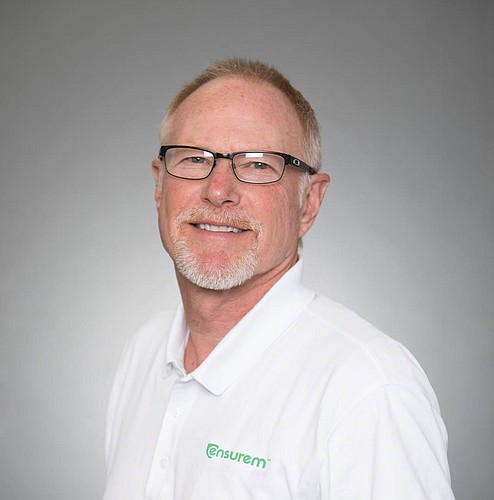- November 23, 2024
-
-
Loading

Loading

When the COVID-19 crisis hit, Ensurem, a Clearwater-based, multicarrier insurance brokerage founded in 2016, was already amid a hiring surge that will culminate in 150 new employees by July. The pandemic, in a pleasant surprise, hasn’t slowed that plan, says CEO Dave Rich, a 37-year veteran of the insurance industry.
“We are going out for our Series B round [of financing], and we’ve had this hiring and growth plan in place for some time now,” says Rich, who founded Ensurem after leaving AmeriLife Group LLC, another Clearwater-based insurance distribution and marketing firm, where he was COO and chief marketing officer. “We are a technology company, so we were able to continue to work virtually and really haven’t missed a beat.”
'Seniors at home, they’re lonely, so our contact rates are very good. They want to talk.' Dave Rich, CEO of Ensurem
Ensurem specializes in retail Medicare and Medicare Advantage solutions and operates in all 50 states. It also sells dental, vision and final expense insurance. It wrote 12,000 policies in 2019, up fourfold from 3,000 policies in 2018.
Despite the economic fallout from the coronavirus pandemic, Rich projects Ensurem, a privately held firm that doesn’t disclose revenue data, will write 33,000 policies in 2020 and see sales growth of 140%. Revenue grew 266% from 2018 to 2019.
“We can do everything remotely,” Rich adds. “Customers can purchase their policy without having to be face-to-face with somebody. But the other thing we’re finding is that seniors at home, they’re lonely, so our contact rates are very good. They want to talk.”
Rich says Ensurem was prepared “early on” to head off disruption caused by the pandemic, which he compares to the Y2K crisis of the late 1990s in the planning required to maintain business continuity. However, “this is much more of an emotional situation for the public,” he says. “We’re just trying to get our arms around it.”
To get ready, Ensurem had computers and other work-from-home technology ready for its 144 employees to deploy right away. Because it sells Medicare, which is regulated by the federal government, it also had to secure its data network to protect customer information and provide gear for employees working at home to record phone calls to ensure regulatory compliance.
The end result, Rich says, is that sales are going up because employees don’t have to commute and are more productive. And because its call center, designed to accommodate 70 people, is now empty, Ensurem is able to use that as a training space for new hires while following the Centers for Disease Control’s recommended social-distancing and sanitary guidelines.